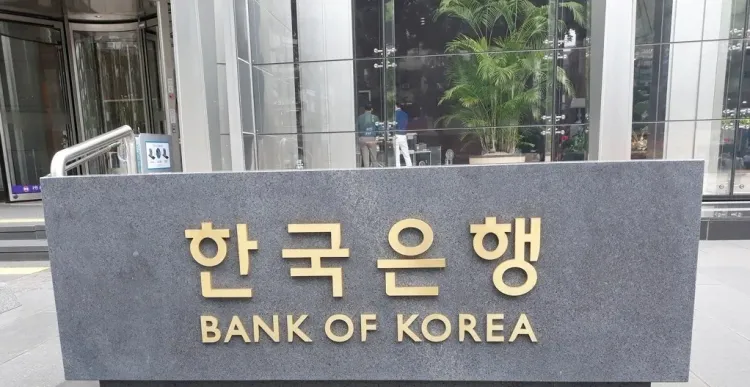Will Consumer Inflation Surge Back to 2% This September?

Synopsis
Key Takeaways
- Consumer inflation in South Korea is projected to rise back to 2% in September.
- Temporary factors causing previous declines are expected to dissipate.
- SK Telecom's discount has significantly influenced inflation rates.
- The BOK has revised its inflation forecast for the year.
- Consumer prices have shown the slowest growth in nine months.
Seoul, Sep 2 (NationPress) Consumer inflation is anticipated to recover to approximately 2 percent in September as the temporary factors that contributed to last month's decline fade away, the Bank of Korea (BOK) announced on Tuesday.
BOK Deputy Governor Kim Woong provided this outlook during a meeting focused on inflation trends, as government statistics indicated that consumer prices rose by 1.7 percent annually in August, marking the slowest growth rate in nine months, according to reports from Yonhap news agency.
"While severe weather such as heavy rain and heat waves increased prices for agricultural, livestock, and fishery products, a significant drop in mobile phone charges reduced last month's inflation by 0.6 percentage points," Kim explained.
"We expect consumer prices to rebound to around 2 percent this month as these temporary downward influences are no longer present. Inflation is likely to remain at about 2 percent for the foreseeable future, owing to subdued demand and stable global oil prices," he added.
In a related note, South Korea's major telecommunications provider, SK Telecom, offered a 50 percent discount on August bills for over 20 million customers following a data breach incident.
The BOK has recently updated its inflation forecast for this year, raising it from 1.9 percent to 2 percent.
In August, South Korea's consumer prices increased by less than 2 percent, reflecting the slowest growth in nine months, largely driven by a sharp decline in telecommunications fees.
Inflation had consistently exceeded the BOK's 2 percent target for four consecutive months until April, with a drop to 1.9 percent in May, before climbing back above 2 percent in both June and July.
This growth rate is the slowest since November 2024, when the year-on-year figure recorded a 1.5 percent increase.
Due to a data breach in April, SK Telecom provided a 50 percent discount on August bills for its vast user base, causing public service fees, including telecom charges, to drop by 3.6 percent year-on-year, thus pulling overall inflation down by 0.42 percentage points.










